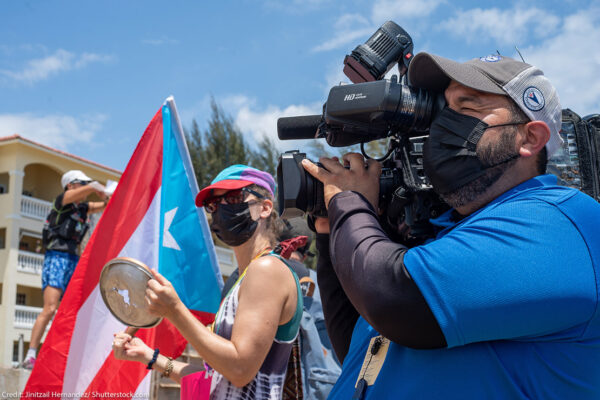Trump’s Version of the ‘Global Gag Rule’ Threatens Global Health and Free Speech


The Trump administration announced earlier this week a massive expansion of the so-called “global gag rule,” a policy that cuts off U.S. support from nongovernmental organizations abroad if they so much as provide information about abortion to women who might want to hear it. This expansion will have a devastating impact on global health — particularly for women and families — as well as on free speech.
The global gag rule stops foreign NGOs from using their own money to provide abortions, information about abortion, or referrals for abortion to women who want them. In addition, it prohibits groups receiving U.S. funding from engaging in legal and political advocacy to promote changes to a country’s laws or policies related to abortion. It also bans NGOs from running public education campaigns to provide people with truthful information about abortion.
The president’s announcement came just one day after he issued a statement marking the start of Women’s Health Week, calling for affordable, accessible, and quality healthcare for women. Yet this policy does exactly the opposite, and its unprecedented expansion makes things worse.
Previous administrations that have imposed the global gag rule have made it a condition of receiving grants from a pool of some $600 million in family planning funding. The Trump administration has drastically expanded the reach of the policy to apply to all global health assistance furnished by the U.S. — to the tune of $8.8 billion. That means that money intended for HIV/AIDS prevention and treatment, or for combating malaria and Zika, is now conditioned on compliance with a rule that is inherently devastating to women and families the world over.
When the global gag rule has been imposed in the past, the health consequences have been severe: Clinics that provided reproductive, maternal, and child health care services were shuttered Access to contraception was restricted And the number of unintended pregnancies and unsafe abortions increased — factors that lead to more women and children dying.
The expansion of this dangerous policy means that not only will women lose access to critical reproductive health care, counseling, and information, but there will be ramifications across an even broader range of global health programs. If organizations refuse to stop providing truthful and often life-saving information about abortion that their clients want and need, they may have to shut down critical programs that prevent and treat HIV/AIDS, fight infectious diseases, and improve nutrition, hygiene, and maternal and child health throughout the world. Simply put, it will devastate health care access in some of the world’s neediest communities.
Let’s be clear: The Trump administration is essentially coercing groups by telling them that if they want to continue to receive aid that their community desperately needs — to prevent maternal mortality, to stop the spread of malaria, to provide health care for children — they must give up their right to engage in truthful speech that the U.S. government doesn’t like.
For the communities that cannot afford to lose U.S. health aid, the administration is ensuring the silence of the very experts who can provide a unique perspective on reproductive health and is stopping the free flow of information. The limits on advocacy and public education mean that parts of the world that are heavily dependent on U.S. global health aid will not hear from the full range of local groups and medical experts on legal and policy debates about abortion. The rule expansion will also make it very difficult or impossible for U.S. groups and individuals to partner with foreign groups to engage in legal advocacy and education, and it will stymie research into abortion-related health outcomes — thereby hampering the advancement of medical science.
The government should not be able to do to foreign organizations what would be unconstitutional were it imposed on domestic groups, which cannot be forced to censor their private speech as a condition of government funding. There is no doubt that with this policy, the administration is not only trying to control the flow of information — an unworthy goal for the U.S. government and contrary to the values of the First Amendment — but also threatening the health and lives of women and families across the globe.


